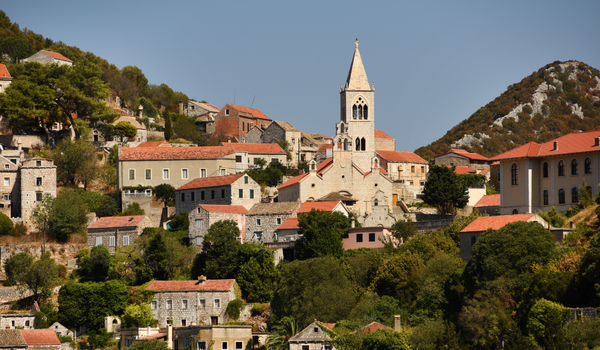Must try food and drinks in Istria
Explore Istria’s culinary treasures, where each dish reflects the region's rich traditions. From savory truffle dishes to artisanal cured meats and local wines, this guide showcases the must-try flavors that define Istrian cuisine.
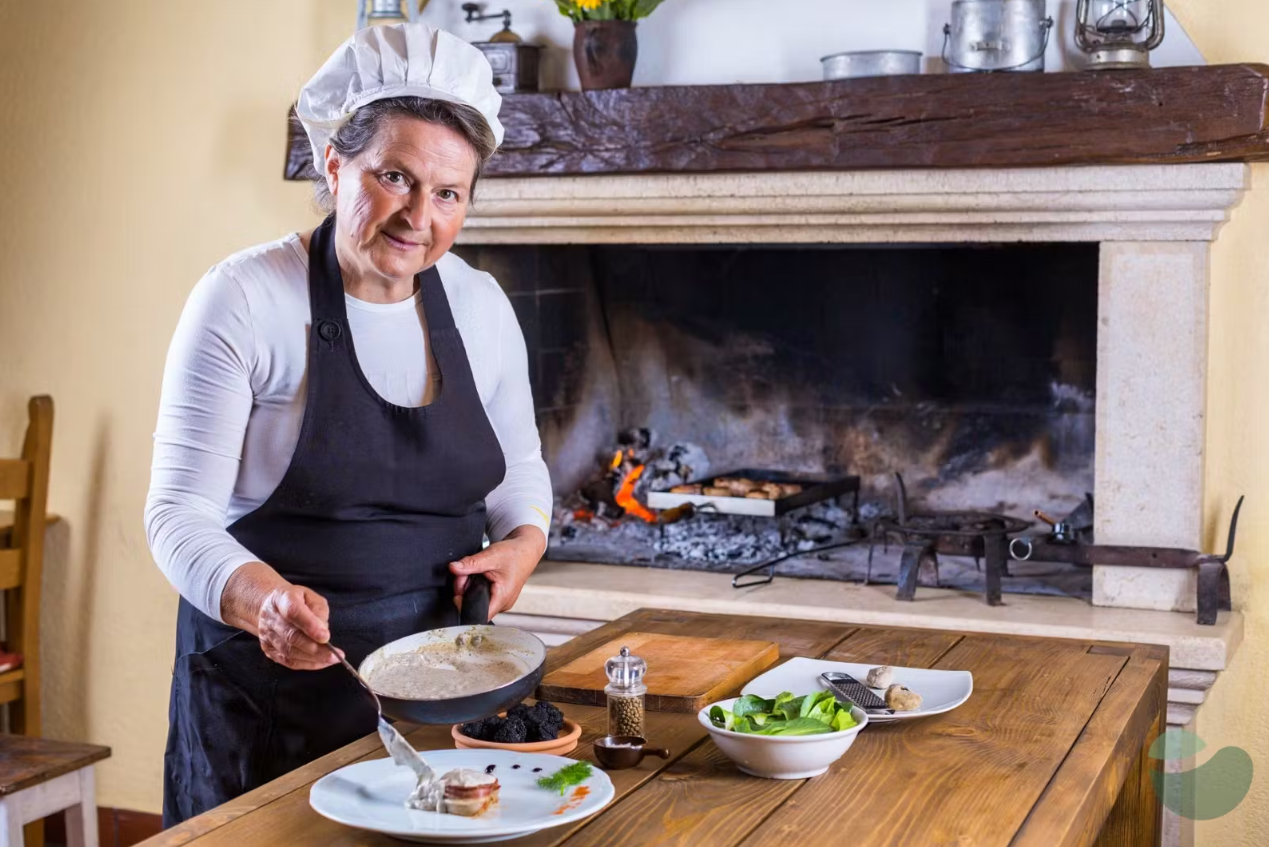
Istria, a picturesque peninsula nestled in the Adriatic Sea, is a Croatian culinary gem that combines Mediterranean flavors with rich cultural influences from Italy, Austria, and Slovenia. Known for its fertile lands and bountiful seas, Istria offers a unique gastronomic experience where traditional recipes are passed down through generations. From truffle-infused dishes to robust wines, the region’s cuisine is a true reflection of its diverse heritage. This guide will walk you through the must-try foods and drinks in Istria, ensuring you savor the very best of what this beautiful region has to offer.
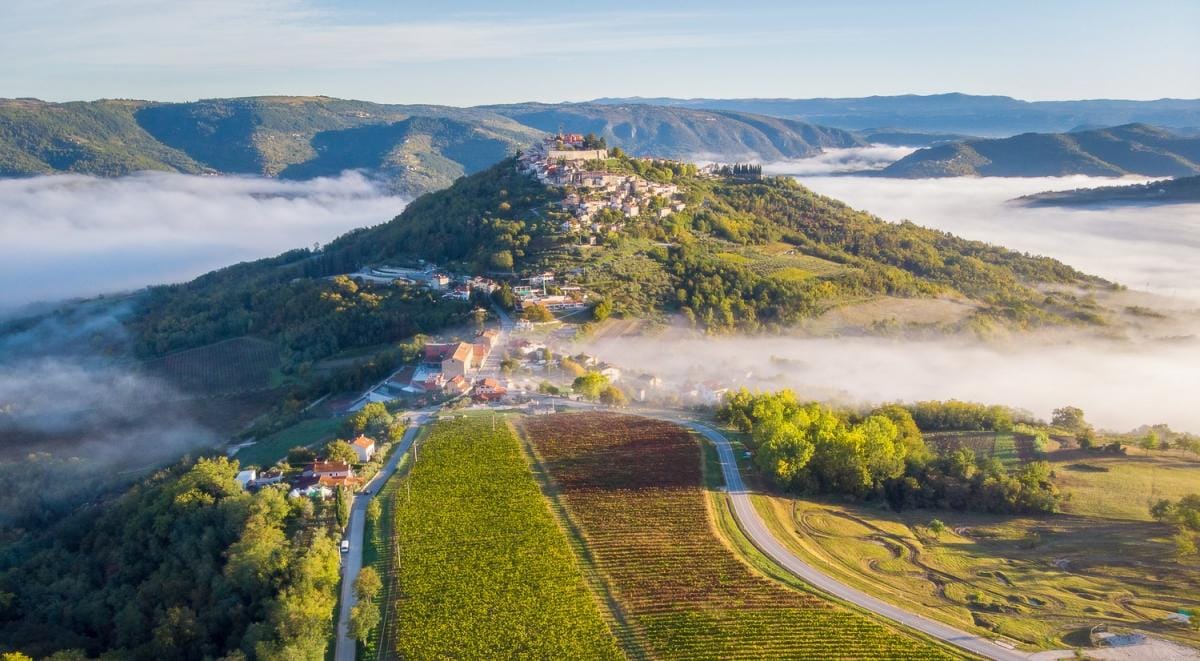
Breakfast food
Istrian breakfasts are often a simple yet healthy and delicious start to the day, showcasing fresh, local ingredients. Through combining seasonal ingredients, these meals reflect the region’s connection to its land and culinary traditions.
Fritaja
Fritaja, a staple in Istrian cuisine, is a simple yet flavorful scrambled egg dish often prepared with various seasonal ingredients. One of the most beloved versions is fritaja with wild asparagus.

What makes wild asparagus (šparuge) particularly special in Istria is its long history and unique flavor. This wild plant, considered one of the oldest in the Mediterranean, has been foraged in Istria for centuries, dating back to ancient times. The Greeks, Romans, and Egyptians all recognized its value—not just for its taste but also for its medicinal properties. In fact, ancient civilizations used asparagus to treat insect bites and toothaches. The Romans went a step further by cultivating asparagus so they could enjoy it even beyond its natural season, and in some cultures, it was even considered an aphrodisiac.
Best snacks and appetizers
Istria’s appetizers are a delightful introduction to its rich culinary heritage, often featuring cured meats, cheeses, and local olives. These snacks highlight methods passed down through generations, making them a true reflection of Istrian craftsmanship.
Pršut (Prosciutto)
Istrian pršut is renowned for its delicate flavor and tender texture. This air-dried ham is cured using sea salt and left to dry naturally in the bura, a cold northern wind. Unlike other types of prosciutto, Istrian pršut is never smoked, which gives it a distinctive taste that pairs perfectly with local cheeses and olives. It’s a must-try appetizer that represents the artisanal skills of Istrian farmers.
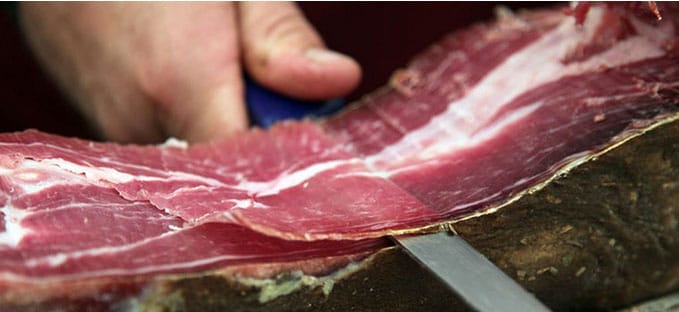
Ombolo (Cured pork loin)
Istarski ombolo, often referred to as "žlomprt" or “zarebnjak”, is a distinctive Istrian cured pork product made out of pork loin. The preparation begins with seasoning the meat with salt, pepper, bay leaves, and rosemary. This seasoned meat is then placed in a wooden container with perforated bottoms, allowing excess moisture to drain away.
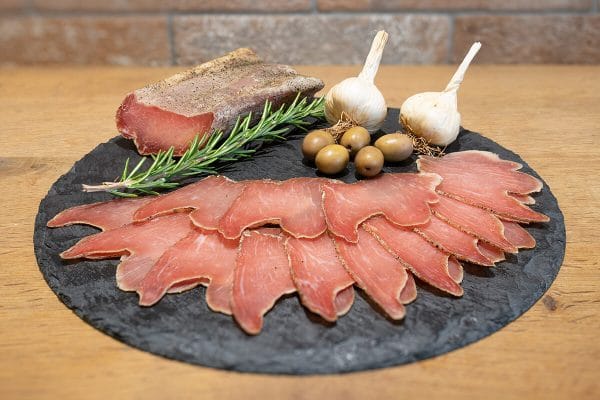
The curing process varies depending on the recipe but generally involves drying the meat for 2 to 3 weeks. For a more intense flavor and firmer texture, the ombolo can be dried for up to 90 days. Once properly cured, it is sliced thin and served as part of a charcuterie platter, often alongside local cheeses, olives, and fresh bread. Istarski ombolo is celebrated for its rich, spiced flavor and is a reflection of Istrian culinary traditions and expertise. Its unique preparation and preservation methods make it a must-try for anyone exploring the region’s food culture.
Istarski sir (Istrian cheese)
Istrian cheese is mostly made from sheep’s milk, cow’s milk or goat’s milk. Aged cheeses, such as Istarski sir, are often infused with truffles, adding an earthy aroma that complements the creamy texture of the cheese. Whether served on its own or as part of an antipasto platter, Istrian cheese is a delight for any cheese enthusiast. In case you find yourself in Istria, take the path of the Istrian Cheese Route and discover the quality cheese from local family farms.

Best main courses
Main courses showcase a combination of rural traditions and coastal influences. From slow-cooked stews to pasta paired with foraged truffles, these dishes offer a taste of the region’s diverse flavours.
Boškarin (Ox)
Boškarin, the iconic Istrian ox, is a must-try for anyone visiting the region. The meat is known for its tenderness and is often prepared in stews or grilled as steaks. Boškarin dishes are usually paired with polenta or local pasta, offering a true taste of Istria’s rural heritage. The breed itself is a symbol of the region’s agricultural history, and its meat is celebrated for its high quality and rich flavor.
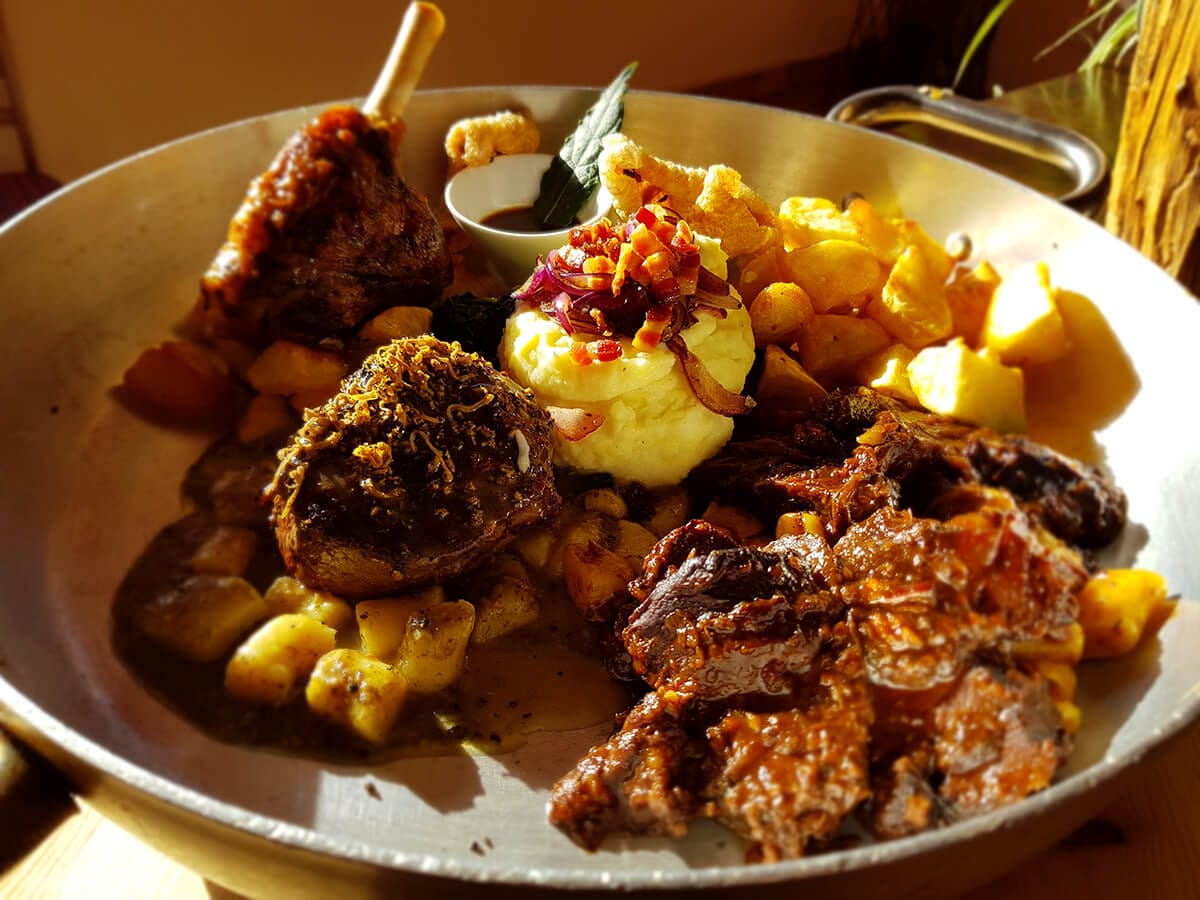
Fuži and pljukanci (pasta) with truffles
Fuži and pljukanci are two traditional Istrian pasta varieties that pair exceptionally well with truffles, a prized ingredient in Istrian cuisine.
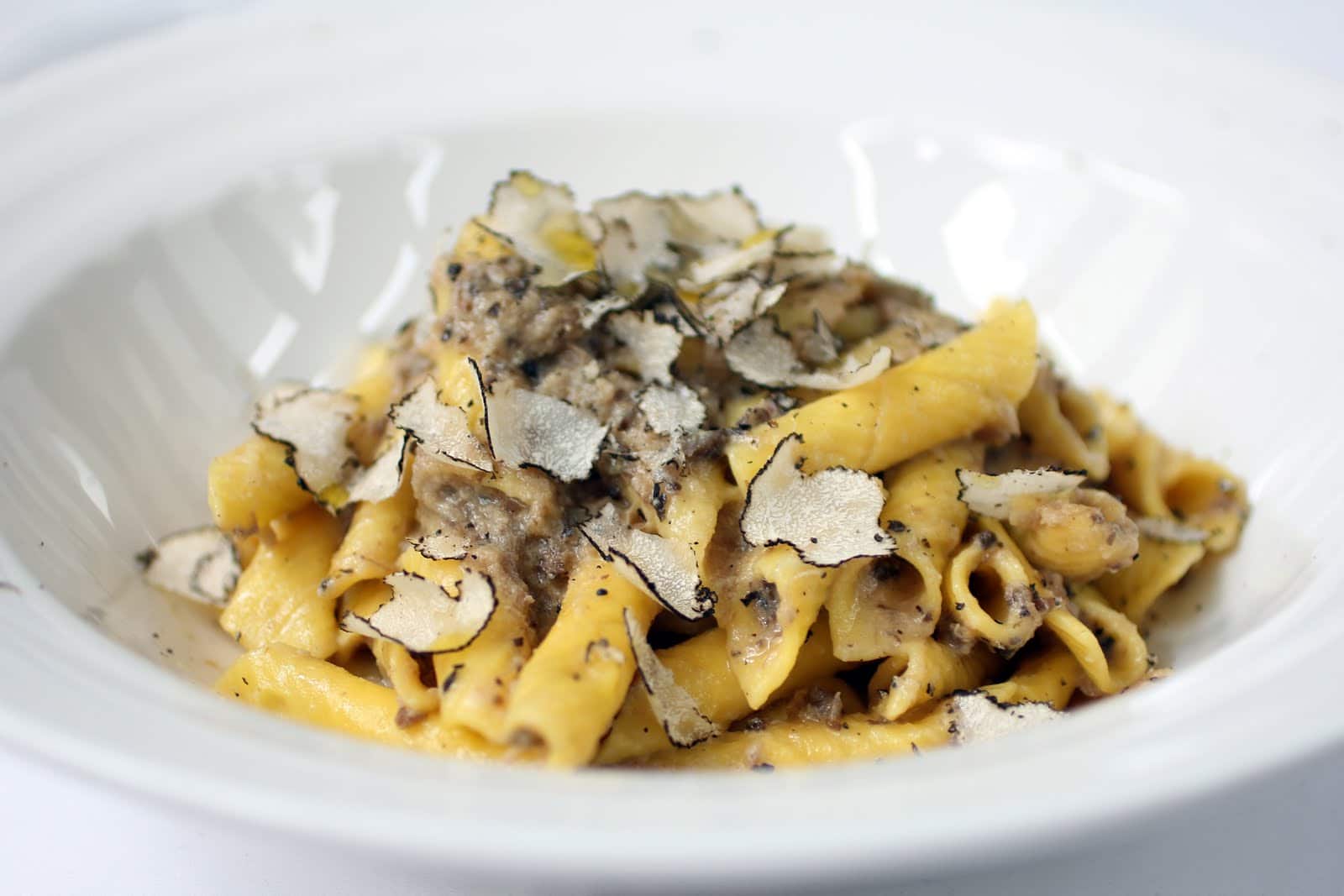
Fuži are quill-shaped pasta, while pljukanci are hand-rolled and have a slightly chewier texture.

Master the art of making traditional Istrian pasta!
Both types of pasta are often served in a rich truffle sauce, which enhances their flavor and makes for a luxurious dining experience. The truffles used in these dishes are usually harvested locally, particularly in the forests near the town of Motovun, making the dish a true Istrian delicacy.
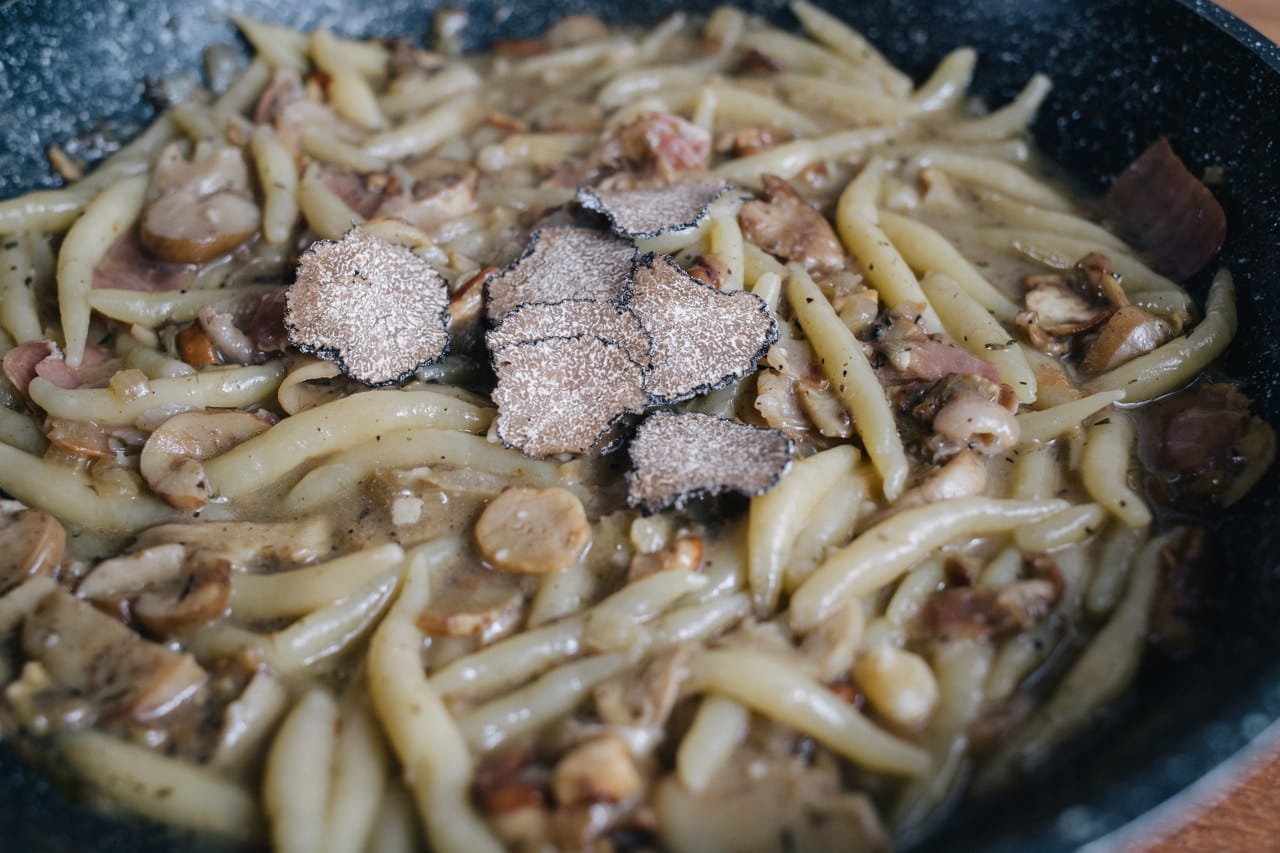
Brudet stew
Brudet, or brodetto, is a savory fish stew that reflects the region’s deep connection to the sea. This dish is prepared with a variety of seafood, including fish, shellfish, and occasionally squid, cooked in a tomato-based sauce with garlic, onions, and white wine. Brudet is traditionally served with polenta, which helps soak up the rich, flavorful broth. It’s a dish that’s as comforting as it is delicious, and it showcases the freshness of Istrian seafood.
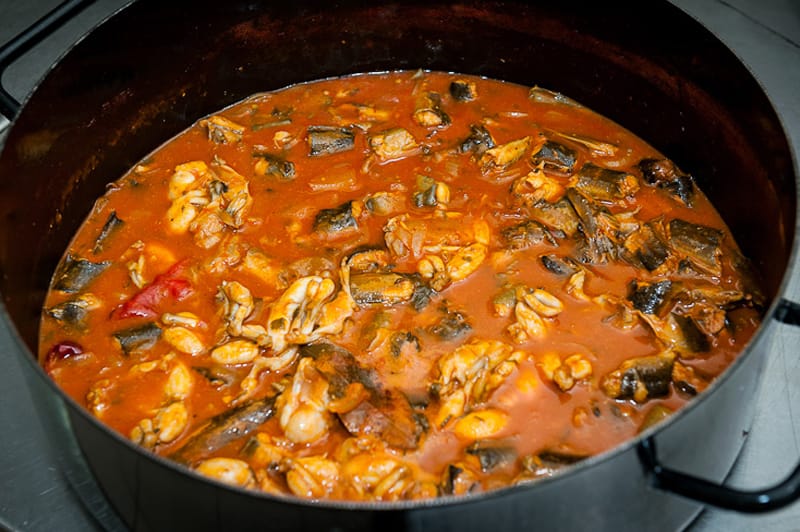
Žgvacet
Žgvacet is a classic Istrian stew-like dish, easily recognized by its rich, comforting flavors and its exclusive use of chicken, unlike similar dishes such as goulash. Traditionally, Žgvacet was a staple in Istrian households, especially in times of scarcity. Beef was rarely used, as cattle were valuable for farming, leaving chicken as the more accessible protein.
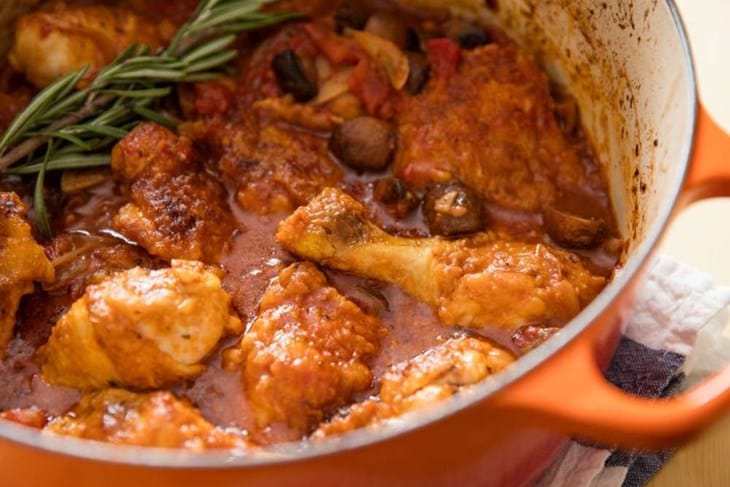
The dish is prepared by slowly simmering chicken with simple yet flavorful ingredients like onions, garlic, tomatoes, and white wine. This slow-cooking process allows the flavors to meld, creating a hearty stew that’s both satisfying and deeply rooted in Istrian culinary tradition. Žgvacet is typically served with fuži or pljukanci, types of local handmade pasta that perfectly absorb the stew’s savory sauce.
Maneštra
Maneštra is a thick, hearty soup made from beans, potatoes, and other seasonal vegetables. Often enriched with pancetta or sausages, maneštra is a staple of Istrian home cooking and is enjoyed throughout the year. Each village and household may have its own variation of this soup, making it a dish that’s both diverse and deeply personal.
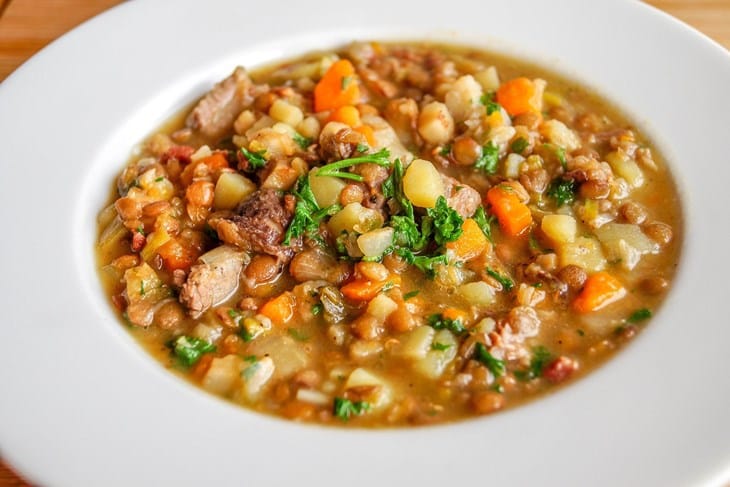
Škampi na buzaru (Scampi stew)
Škampi na buzaru is a traditional Istrian seafood dish featuring scampi cooked in a sauce of garlic, white wine, tomatoes, and breadcrumbs. This simple yet flavorful dish is a favorite among locals and visitors alike. It’s typically served with crusty bread, perfect for soaking up the rich, savory sauce. The freshness of the scampi, often caught locally, makes this dish a standout in Istrian cuisine.
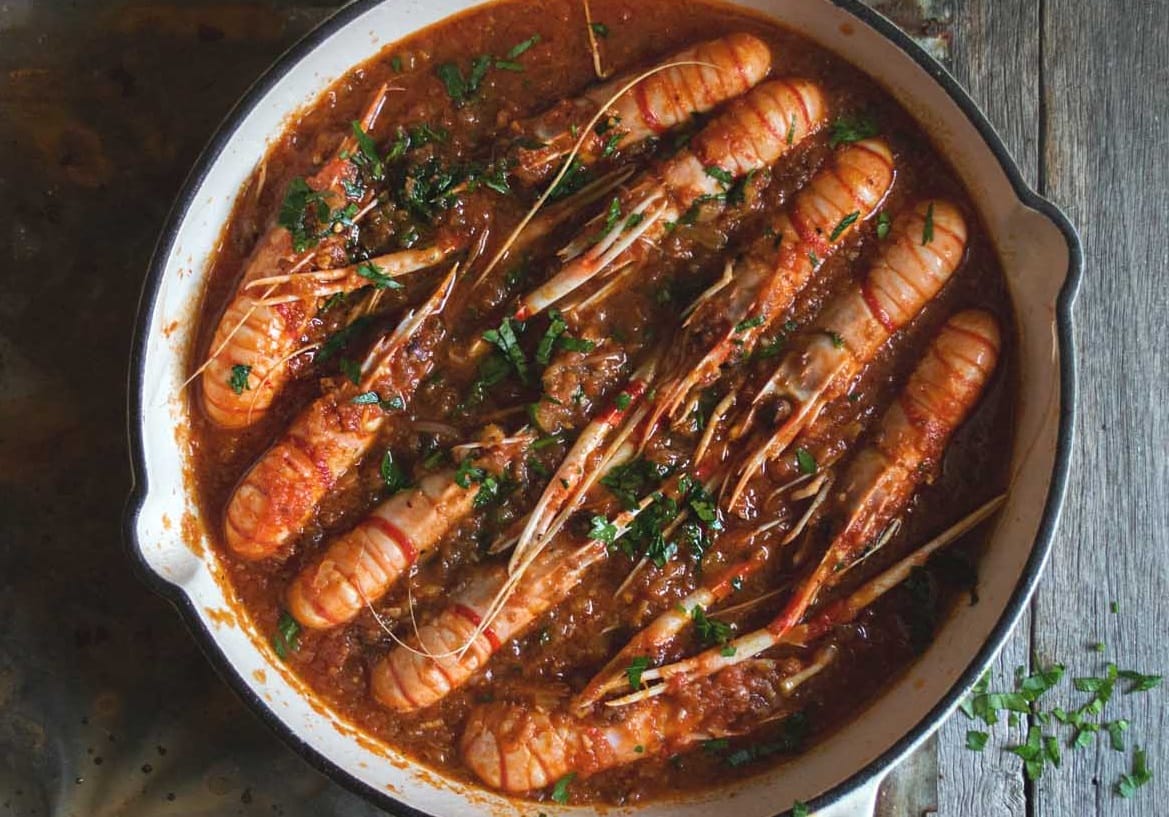
Best desserts
Istrian desserts are a sweet way to conclude any meal, with recipes that draw on local ingredients and traditions.
Fritule
Fritule are small, deep-fried pastries that are particularly popular during the Christmas season, but they can be found year-round at local festivals and markets. These doughnut-like treats are flavored with rum, citrus zest, and raisins, then dusted with powdered sugar. Crispy on the outside and soft on the inside, fritule are a sweet indulgence that’s hard to resist.

Kroštule
Kroštule are another traditional Istrian sweet, made from strips of dough that are twisted into shapes and deep-fried until golden brown. Light and crunchy, they are often dusted with powdered sugar and are a popular treat during festive occasions. The simplicity of the ingredients and preparation reflects the rustic charm of Istrian cuisine.
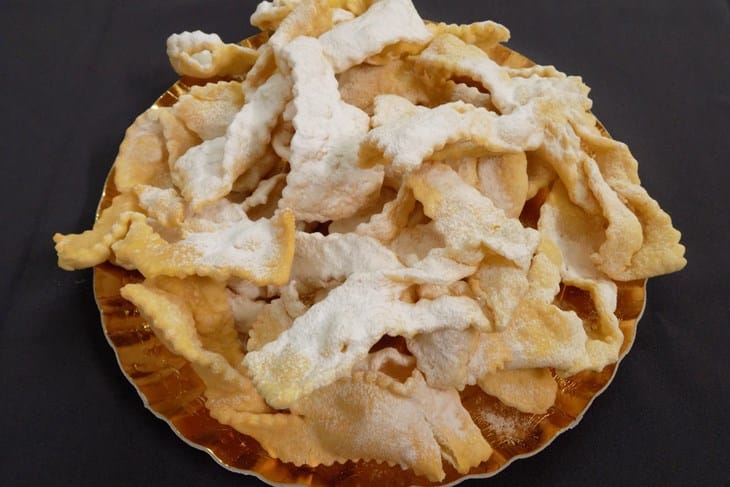
Strudel
Istrian strudel is a variation of the classic Central European dessert, typically filled with apples, raisins, and cinnamon. The flaky pastry and sweet, spiced filling make it a perfect way to end a meal. In Istria, you might also find variations filled with cherries, cheese, or even local herbs, depending on the season.
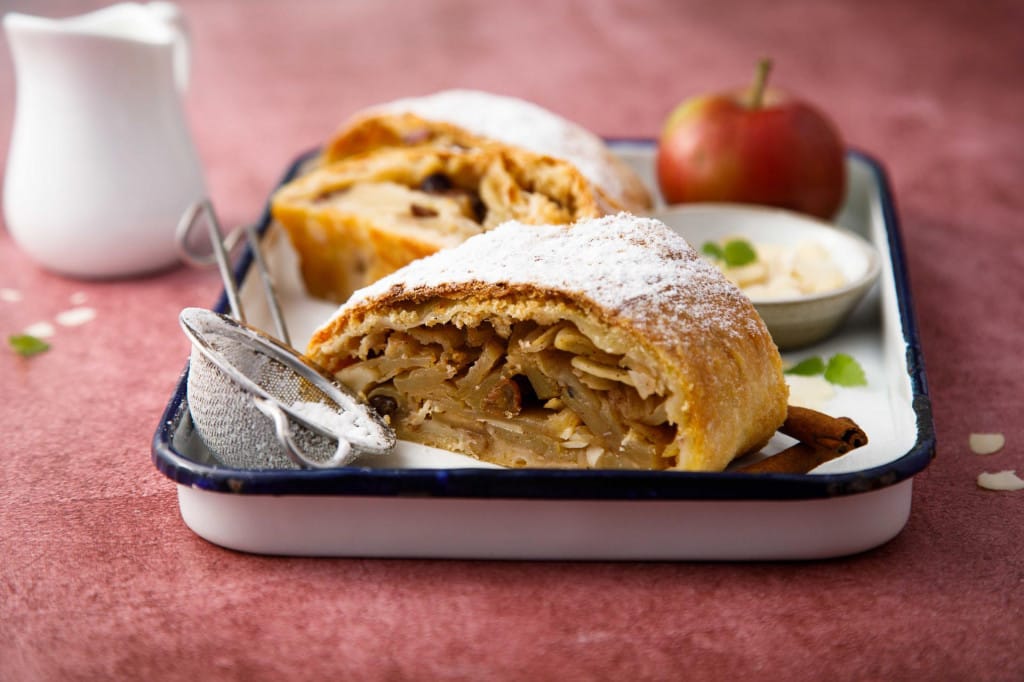
Labinski krafi
Labinski krafi are a unique Istrian dessert originating from the town of Labin. These sweet ravioli are filled with a mixture of raisins, nuts, and spices, then boiled and served with a drizzle of honey or a dusting of powdered sugar.

They are a testament to the creativity and diversity of Istrian desserts, offering a delightful combination of flavors and textures.

Learn how to make perfect Labinski Krafi!
Must try drinks in Istria
Through drinking Istria’s signature beverages, you can definitely taste the interesting past and tradition of the region. The iconic Pašareta takes you back to your carefree childhood days, and the indigenous wines tell a story of the area’s unique terroir and winemaking tradition.
Non-Alcoholic Drinks
Pašareta - The Iconic Red Drink
Pašareta is a non-alcoholic fizzy beverage with an intense red color, made from sugar, water, and fruit flavoring. It has been produced by the Ferenčić family from Pazin, who have been in the soft drink business since 1924. For many Istrians, the taste of Pašareta brings back childhood memories, making it a beloved regional symbol.
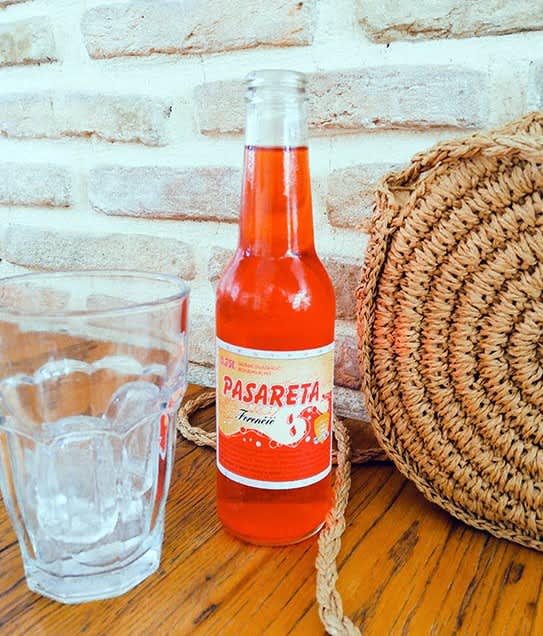
What's particularly interesting about Pašareta is that the Ferenčić family has never invested in marketing or expensive advertising campaigns. Its popularity has spread almost entirely by word of mouth, yet it remains immensely popular, proving the power of local tradition and the product’s nostalgic appeal.
Another unique aspect of Pašareta is its regional exclusivity—it can only be found in Istria. You won’t find it in cafes or stores outside the region, which adds to its charm. For locals and visitors alike, enjoying a cold Pašareta is a special experience tied closely to the Istrian way of life. Whether you’re sipping it at a beachside café or pairing it with local snacks, Pašareta offers a refreshing taste that’s uniquely Istrian.
Alcoholic Drinks
Malvasia Istriana
Malvasia Istriana is the signature white wine of the region, characterized by its light, golden hue and floral, fruity aroma.

This wine is typically dry, with a crisp acidity that pairs beautifully with seafood dishes and light appetizers. Malvasia has a long history in Istria and remains one of the most popular wines among both locals and visitors.
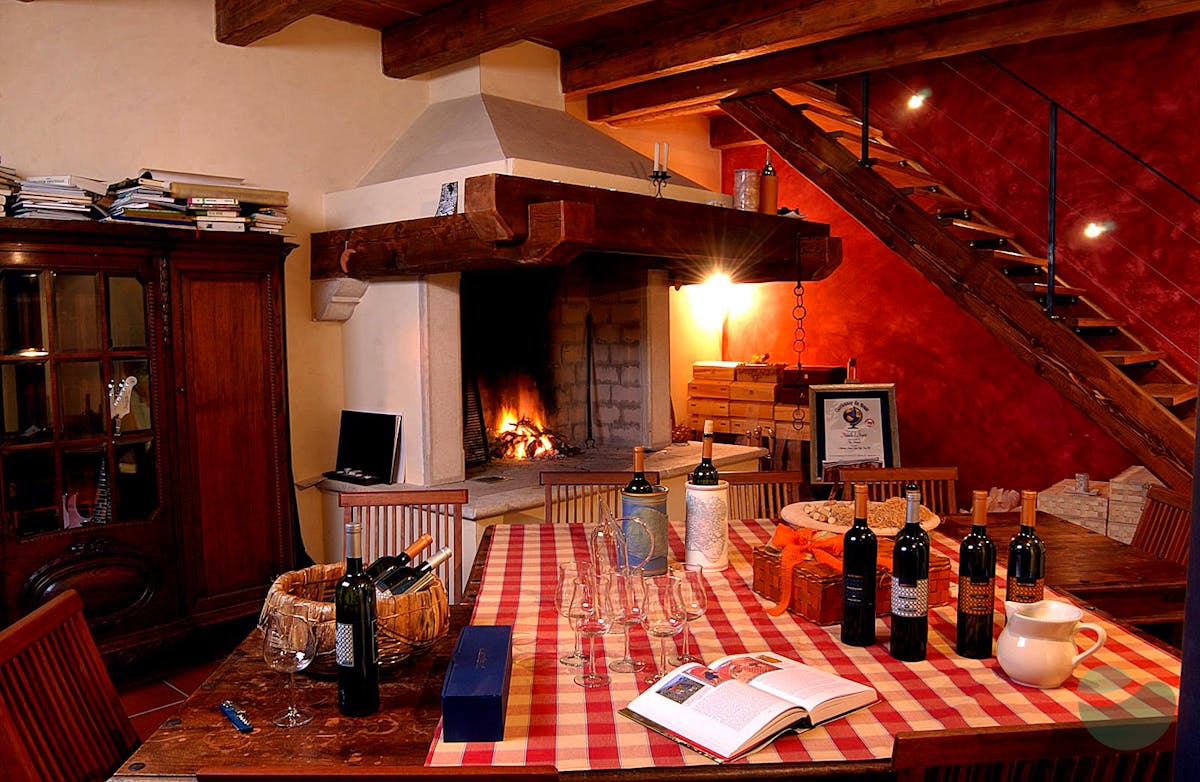
Visit Matošević Winery if you want to try great Malvasia!
Teran
Teran is a robust red wine that has been produced in Istria for centuries. Known for its deep ruby color and intense flavors of dark berries and spices, Teran is often paired with rich, hearty dishes like boškarin or meat stews.
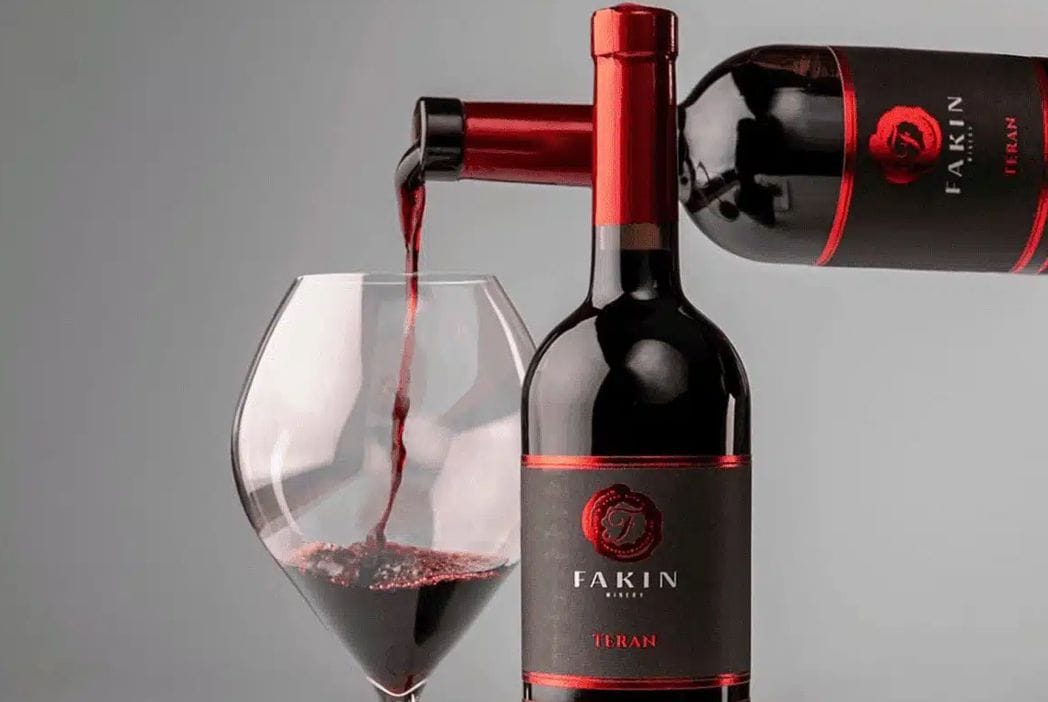
The wine’s bold character reflects the rugged landscape of Istria, making it a perfect representation of the region’s winemaking tradition.
Istarska supa (Istrian soup)
Istarska supa is a unique culinary experience deeply rooted in Istrian tradition. This warm, wine-based beverage is unlike anything you'll find elsewhere. Traditionally prepared with Teran, a robust red wine native to the region, and seasoned with sugar, black pepper, and olive oil. Istarska supa also includes toasted bread soaked in the wine. It is then gently warmed in a special clay jug, called a "bukaleta," which adds to the ritualistic nature of its preparation and serving.
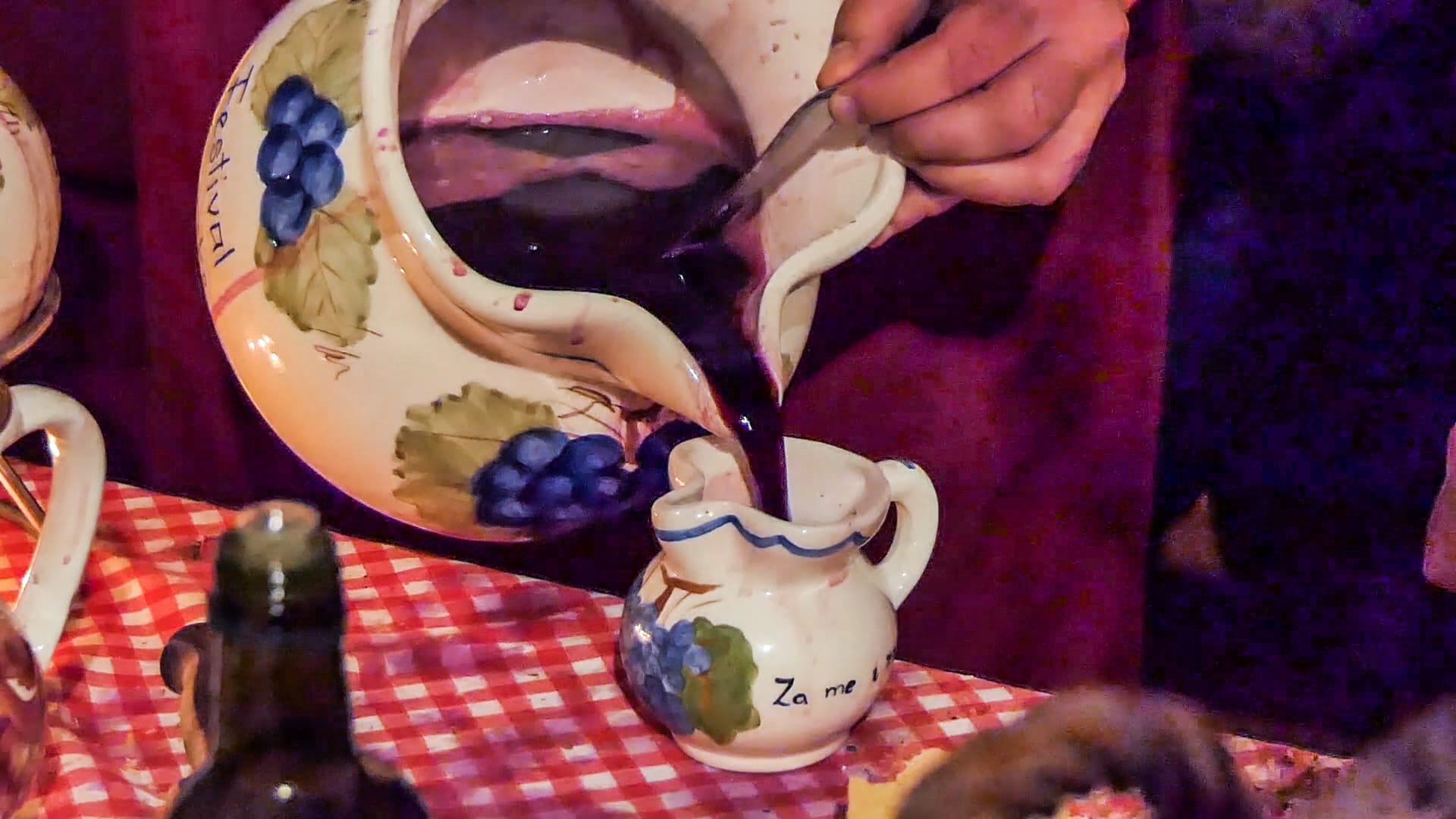
The ritual of preparing and sharing Istarska supa is as important as the dish itself. It’s typically served in the bukaleta, passed around the table so everyone can share from the same vessel, symbolizing unity and community. This communal aspect of Istarska supa makes it more than just a beverage; it’s an experience that brings people together, reflecting the spirit of Istria.
Muscat Momjan
Muscat Momjan is a sweet dessert wine from the Momjan area, known for its rich, aromatic profile and flavors of ripe fruit. This wine is often enjoyed with Istrian desserts such as fritule or kroštule, providing a sweet and satisfying end to a meal. The distinctiveness of Muscat Momjan lies in its balance of sweetness and acidity, making it a favorite among those who appreciate dessert wines.

Visit Momjan and try delicious Muscat!
The beauty of Istrian cuisine
Istria’s culinary landscape is as diverse as it is delicious, offering a wealth of flavors that reflect the region’s rich cultural heritage and bountiful natural resources. From the hearty stews of žgvacet and maneštra to the delicate nuances of truffle-infused pasta and the sweet indulgence of fritule and kroštule, every dish tells a story of tradition, craftsmanship, and love for the land. Pair these culinary delights with a glass of Malvasia or Teran, and you’ll experience the true essence of Istria. Whether you're exploring local family restaurants, participating in a cooking class, or enjoying a meal with locals, the food and drinks of Istria are sure to leave a lasting impression.
For more on where to enjoy these dishes, don’t forget to check out our guide on the Best restaurants in Istria and explore the unique Gastro Experiences available in the region.





